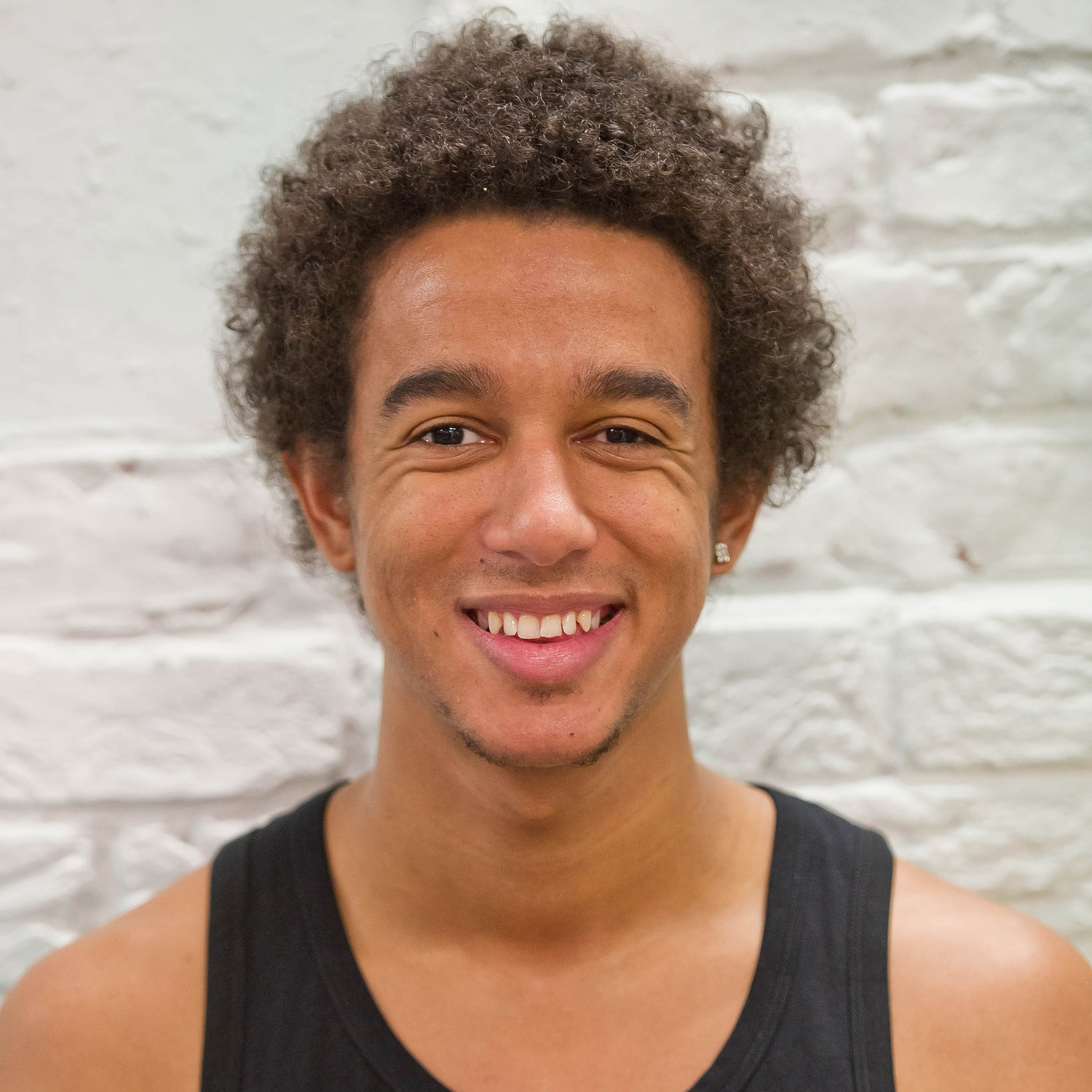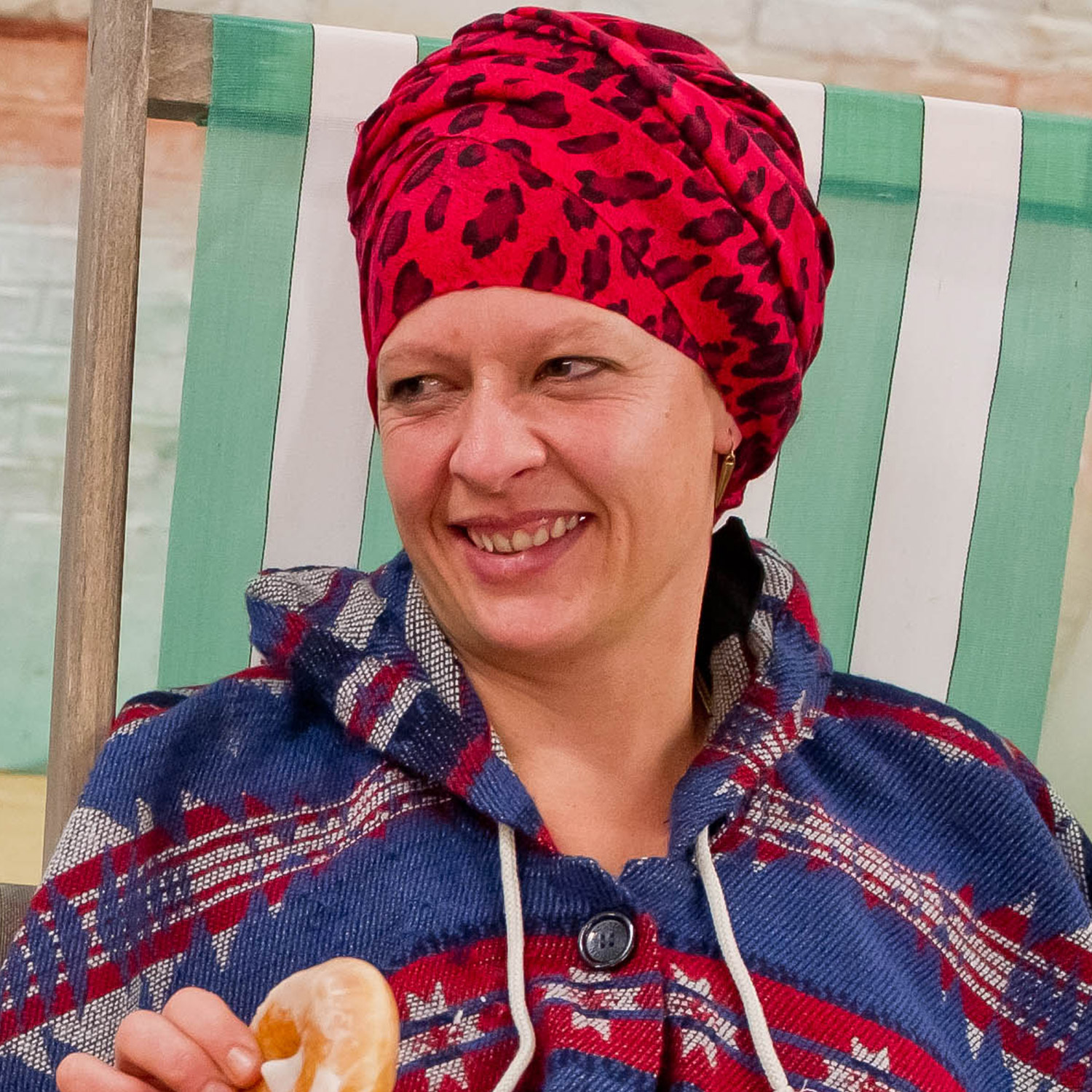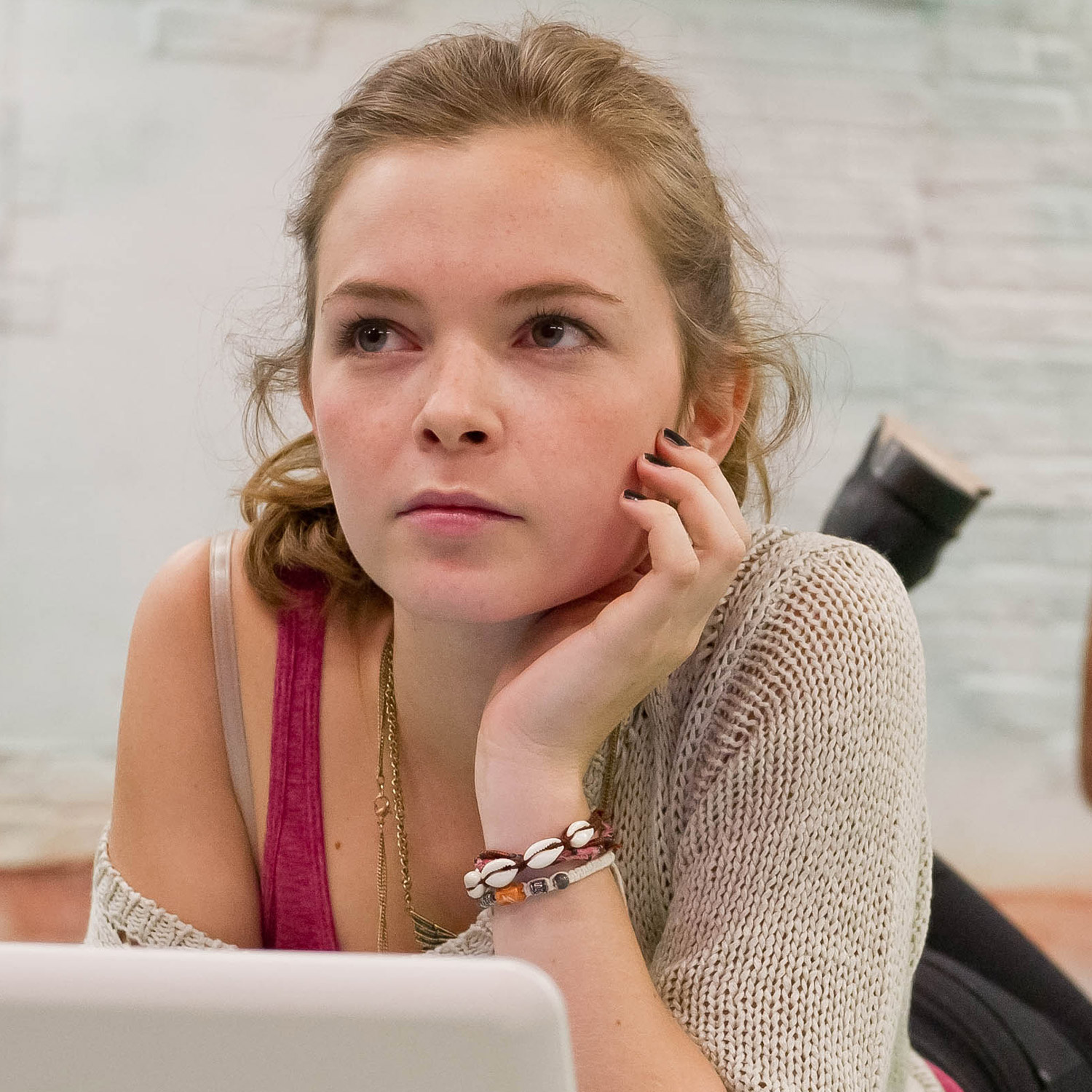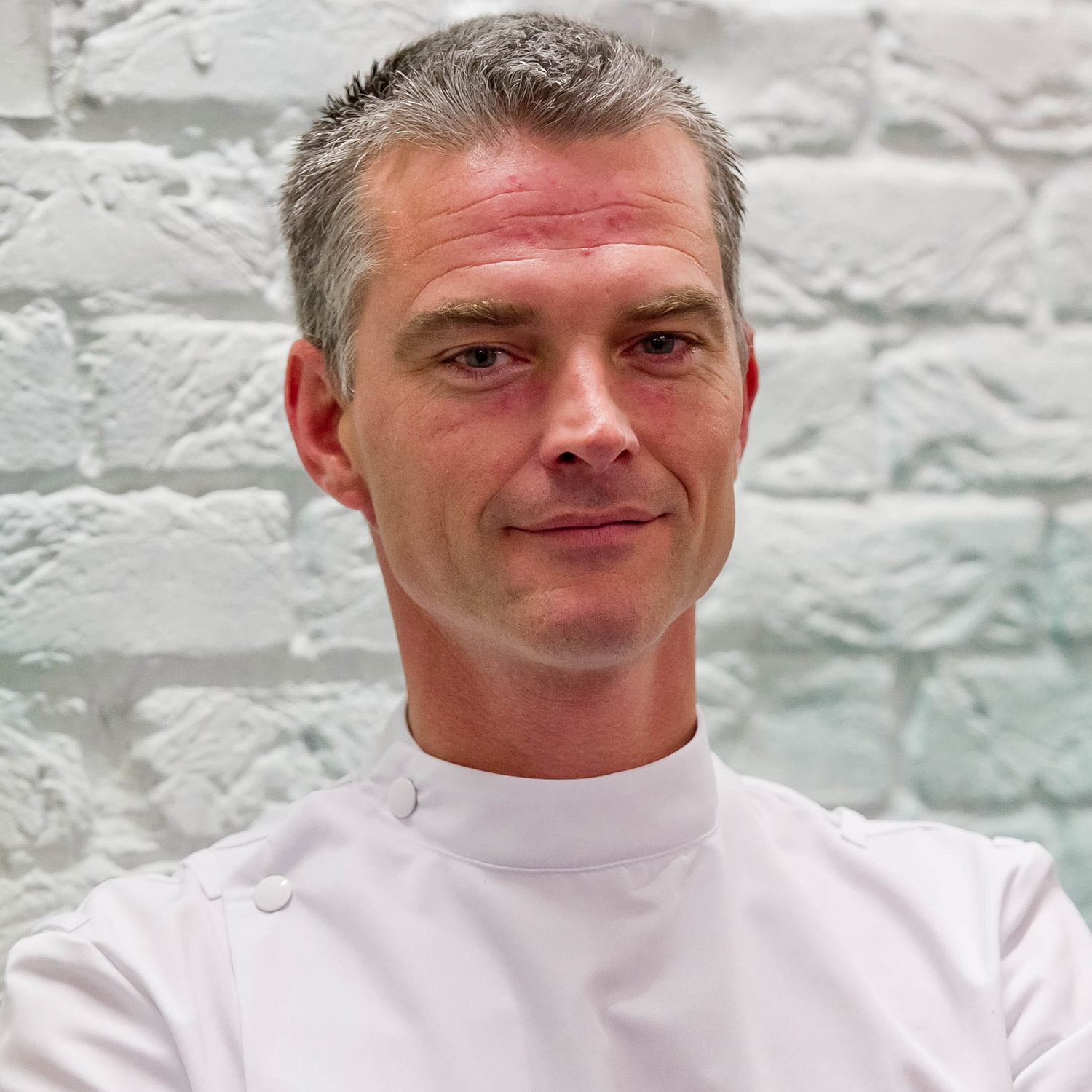Dayglo
Written by Abi Bown / Produced by Theatre of Debate
Focus
Genetic inheritance, genetic testing and screening, personalised genetic medicine, the brca gene
Audience
Young people (14 plus) and adults
Resources
Available for teachers and students, science communicators and health workers
Full Film
Available through Theatre of Debate, with subtitles by Stagetext
Length
68 Minutes
Overview
‘Dayglo’ tells the story of a mother and daughter both affected by breast cancer and their relationship with a teenage boy whose family is affected by sickle cell anaemia.
Abi Bown’s moving play explores the issues raised by the personalisation of medical treatments according to our genes.
Developed in partnership with The Association of Medical Research Charities (AMRC) the University of Ulster, the NHS Sickle Cell & Thalassaemia Screening Programme and supported by the Wellcome Trust and the Royal Albert Hall Education.
View the trailer
Cast

Karl Queensborough
as Noel

Rebecca Crankshaw
as Evelyn

Juliet York
as Stella

Glynn Morgan
as Brian
Synopsis
Stella arrives home in Brighton to visit her mum Evelyn after a five year absence. Anxious about the reunion, she stops off at a chicken take- away joint and is served by Noel, who dampens her fears with his wit. Stella meets her mum at an eclectic sea-front flat and learns that mum is recovering from breast cancer.
Stella feels manipulated into staying on in Brighton, but can see Evelyn is in need of support. Noel at The Chicken Shack confesses he has a brother with sickle cell anaemia and together they set about familiarising themselves with Evelyn’s medical condition.They discover that Evelyn has a family history of breast cancer of which she was unaware, Great Great Grandad Douglas died of it in 1920, his two daughters also died from cancer years later.The family history information means Evelyn is now eligible for BRCA testing to see if she is positive for BRCA 1 or 2 – genes which increase the risk of breast cancer.
Stella persuades her mum to have the BRCA test but Evelyn is cautious: she has fought most of her life from the standpoint of anarchy – what the state has got on you they can use against you – including your genes.
Also, if Evelyn turns out to be BRCA positive, this will have implications for Stella because it indicates that the cancer has a higher chance of being inherited. The test results show that Evelyn is indeed BRCA positive. Evelyn’s nurse, Brian, is optimistic, pointing out that Evelyn may benefit from new drugs called PARP inhibitors which are targeted to BRCA positive tumours.This is an example of pharmacogenetics at work.
Evelyn does not automatically have access to the PARP inhibitor because it has to undergo clinical trials in order to be shown to be safe, and to work in the way intended. Running such trials is dependent on people being willing to take part and ‘chance’ being randomly given the new drug or the best existing treatment, ie some form of chemo.
Stella wants Evelyn to join the clinical trial, while Evelyn is reluctant to subject herself to further treatment and side effects in the 50/50 hope of getting the new drug. Finally agreeing to the trial, Evelyn distracts herself with collating her musical past which is to be a posthumous gift for Stella should she not do well.
Stella is between a rock and hard place, with every new bit of information a new challenge emerges – should she now get tested herself? If Stella too is found to be BRCA positive she may be offered regular screening or preventative surgery.Would Noel still be interested in her if she has the “bad” BRCA gene?
Evelyn comes off the trial early having found her health worsening whilst others on the trial appear to be flourishing/dramatically improving. Stella is angry, her mum is giving up and not helping in the advancement of a cure that Stella herself may need one day. Evelyn would rather hire a swanky hall in Brighton Pavilion for a farewell gig.This is what all the information from unearthing dear old Great Great Grandad Douglas has led to – Evelyn’s choice and Stella must accept it.
Evelyn hires a room in Brighton Royal Pavilion for a punk party, Stella can’t bring herself to go. Noel pleads for Stella to consider turning up but there’s too much baggage from Stella’s past, it’s Stella’s choice to stay away, she runs to the beach as the gig plays out behind her.
Evelyn finds Stella under the pier at dawn. Reunited in the moment, mother and daughter watch the sun come up together and finally the healing process truly begins.
Developed in partnership with
The Association of Medical Research Charities (AMRC)
The University of Ulster
The NHS Sickle Cell & Thalassaemia Screening Programme
Supported by the Wellcome Trust and the Royal Albert Hall Education
Created in collaboration with
Kimberly Jamie,ESRC/Pharmacy Practice Research Trust PhD student, University of York
Maggie Alexander, Director of Policy, Education and Influencing, Breakthrough Breast Cancer
Professor Katherine Payne, Professor of Health Economics, Health Sciences – Methodology School of Community Based Medicine, The University of Manchester
Professor Munir Pirmohamed, NHS Chair of Pharmacogenetics, University of Liverpool
Professor Valerie McKelvey-Martin, Head of Engagement and Professor of Molecular Biosciences, Department of Pharmacy and Pharmaceutical Sciences, University of Ulster, Coleraine (UUC)
Dr. Sophie Petit-Zeman, Adviser, Patient Involvement & Engagement, Association of Medical Research Charities (AMRC)
Dr Olivier Harari, Clinical Science Leader, Roche Products Ltd
Subscribe to Theatre of Debate
Full access to our suite of resources
School Licence
- Full access to all Theatre of Debate projects
- New/Upcoming projects included
- Watch all full length plays
- Read the play scripts
- Watch actor and playwright interviews
- Detailed facilitator notes
- KS3/KS4 curriculum links
- Full lesson plans
- Debate packages
- Extension activities
- Engaging resources
- 2 Week free trial included
Up to 300 Pupils
2 Weeks for free, then
£150 p/year
Up to 500 Pupils
2 Weeks for free, then
£250 p/year
Up to 600 Pupils
2 Weeks for free, then
£300 p/year
Up to 900 Pupils
2 Weeks for free, then
£450 p/year
Home Licence
- All school licence features
- Single user licence only
- 2 Week free trial included
